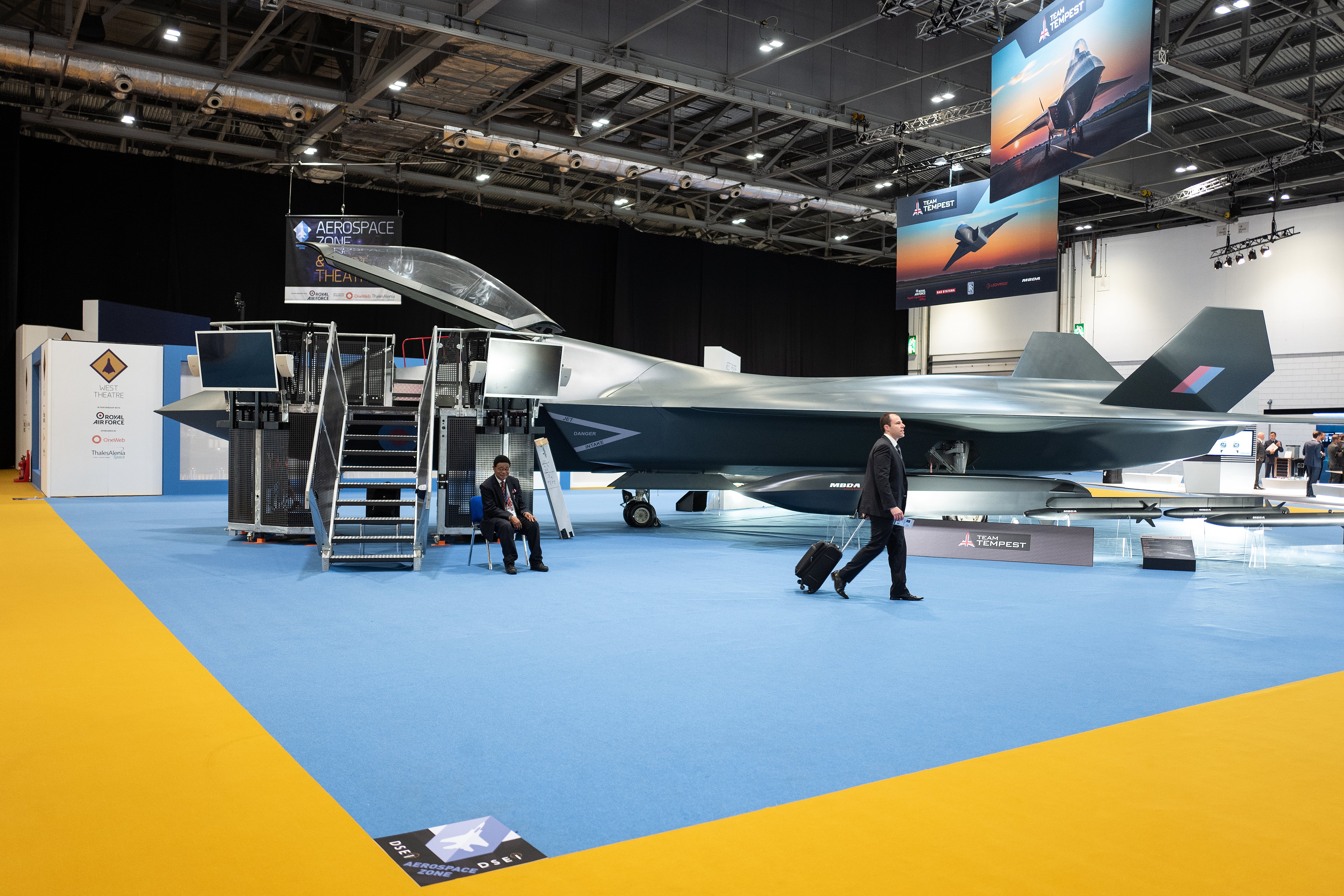COLOGNE, Germany — With mainland Europe and the United Kingdom pursuing their own sixth-generation fighter programs, differing views have started to emerge about how many nations should partake in the action.
At issue is whether the British Tempest and the German-French-Spanish Future Combat Air System can coexist in the long run without cannibalizing the continent’s defense budget.
What’s more, while leaders in the U.K. have openly advertised their appetite to pick up partner countries for Tempest, Paris and Berlin are divided about admitting additional members, besides Spain, for fear of slowing down their effort.
Click here to see the Defense News Top 100 list.
German defense officials early this year told Bundestag lawmakers they consider it risky to keep the circle of participants too small because team Tempest could go around snagging up contributors, though that concern has yet to bear out.
To Dirk Hoke, the CEO of Airbus Defence and Space, the issue comes down to the budget. His company is the co-lead for the FCAS program along with France’s Dassault Aviation. Notably, the French have the lead for the Next-Generation Fighter, envisioned as the central aircraft for the larger program of supporting drones and command-and-control equipment.
“Europe can’t afford two new systems,” Hoke said in a virtual panel discussion organized by a German defense industry lobbying association.
That is especially the case, he argued, because a competition between the U.K. and members of the European Union would reinforce the perception that Britain’s divorce from the bloc has weakened the intra-continental defense alliance — a notion that leaders on both sides of the Channel have been trying to dispel.
RELATED

Finding a way to merge FCAS and Tempest should become a top priority for decision-makers once a Brexit agreement on future trade and defense relations is in the bag, according to Hoke. Until then, he said, “we simply have to be patient.”
In order to be prepared for “an opportunity to negotiate at eye level,” both projects should continue to work through their technology development so that eventual touchpoints for cooperation are already far along, he explained.
In contrast, Dassault Aviation CEO Eric Trappier has urged caution when it comes to broadening the FCAS circle too soon.
“I don’t know if there won’t be some new partners in the future,” he said during a company earnings call late last month. “We must not exclude them.”
Noting that Spain already was admitted to the program after Germany and France had kicked it off, Trappier said the companies involved were still learning to work together. “We have to get to know each other and share our work together,” he said.
“If we change partners every six months, I can tell you that we will not reach 2040,” he added, referring to the envisioned in-service date for the futuristic weapon.
The next big milestone for the program is fielding a demonstrator aircraft in 2026.
Sebastian Sprenger is associate editor for Europe at Defense News, reporting on the state of the defense market in the region, and on U.S.-Europe cooperation and multi-national investments in defense and global security. Previously he served as managing editor for Defense News. He is based in Cologne, Germany.






